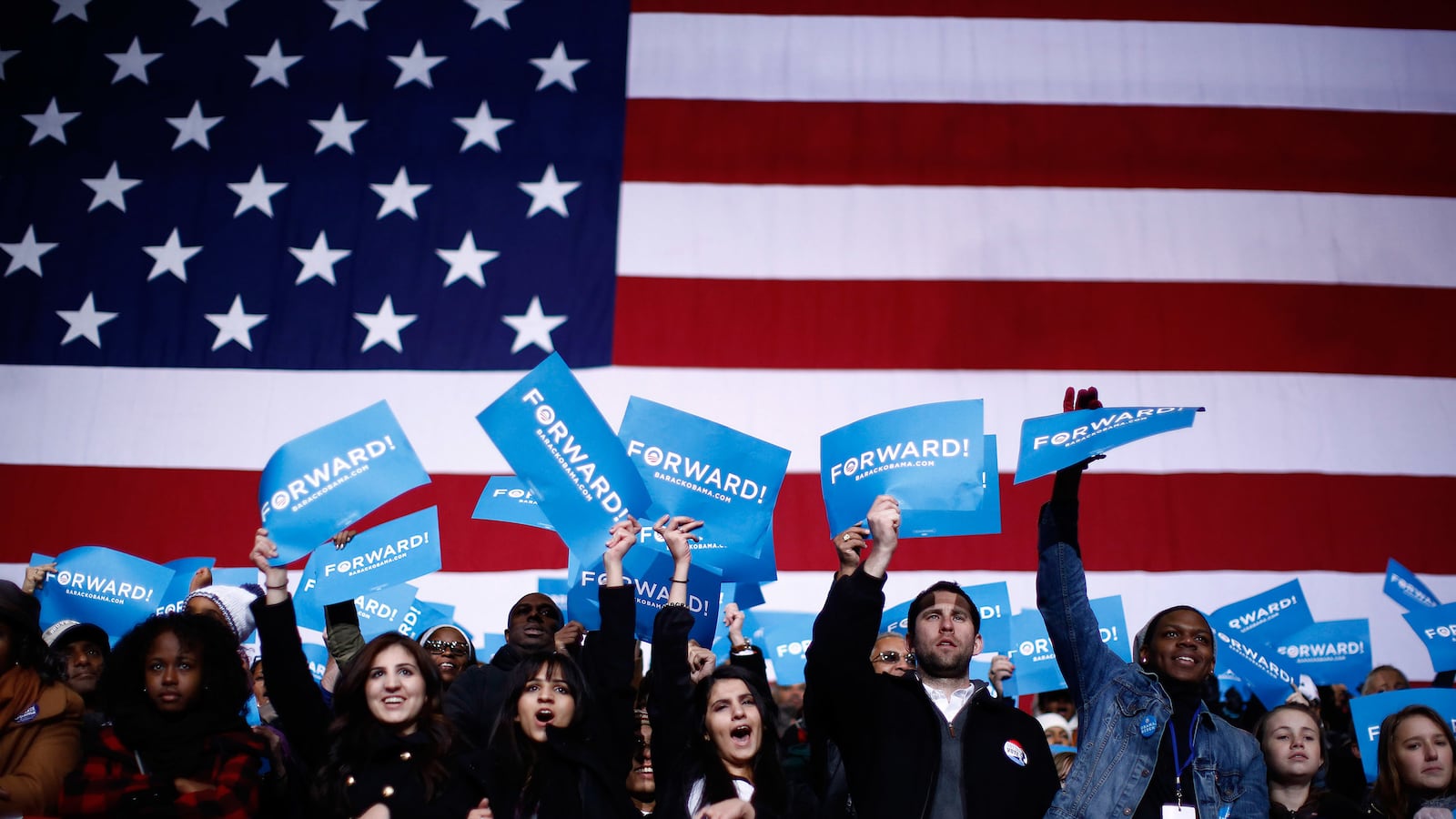With fewer than 75 days left until Election Day, Democrats across the country are feverishly moving from planning to implementing a vast, multilayered turnout operation that they hope will make the 2014 mid-term elections look more like a victorious Obama presidential year and less like the sort of mid-term wipeout that cost them the House majority in 2010.
It won’t be easy. Of the 21 Senate seats Democrats are defending, six are Red states that Mitt Romney easily carried in 2012. Even in Democratic and swing states, President Obama’s dismal approval ratings are a drag on any Democrat in a competitive race.
But as the cliché goes, the only poll that matters is the one on Election Day, and Democrats are focusing an unprecedented amount of resources on turning their voters out on November 4th. The data-driven, Obama campaign-inspired approach is designed to not only persuade likely voters to pick the Democrat in their elections, but also to vastly expand the pool of Democratic votes in those elections by finding, registering and turning out people who would probably vote for a Democrat, if they bothered to vote at all.
The Democratic Senatorial Campaign Committee is calling their $60 million turnout operation “the Bannock Street Project.” The Democratic National Committee calls theirs the Voter Expansion Project. DuBose Porter, the chairman of the Democratic Party of Georgia where the DSCC and DNC are both invested and where Democrats must win to keep their Senate majority, has his own term for getting out the vote in 2014.
“I call it getting souls to the polls,” he says.
DNC Chairwoman Debbie Wasserman Schultz unveiled details of the DNC’s Voter Expansion Project on Thursday at the DNC’s summer meeting in Atlanta. The effort includes micro-targeting tools for state Democratic parties to identify potential voters block-by-block; a website for potential voters to find out when and where to vote, and a team of more than a dozen Voter Expansion Directors focused on ballot and poll access in targeted states, including Georgia.
“What the Voter Expansion Project is about is getting down into the weeds-- the nitty gritty, block by block, precinct by precinct, hand to hand combat, door to door, neighbor to neighbor voter registration,” she told the Daily Beast. “Get them turned out, and when they do turnout, make sure their vote is counted.”
Turn out operations will be crucial in at least 10 states across the country, but especially in a state like Georgia that is suddenly and unexpectedly competitive. Although Republicans control the state legislature and state-wide offices, national Democrats were shocked by President Obama’s relatively strong showing there in 2012, seven points behind Romney, after the Obama campaign did essentially nothing there to win.
With two top-tier candidates, Michelle Nunn and Jason Carter, now running for Senate and governor respectively, Democrats are plowing resources into a state that will only be truly winnable if Democrats significantly expand their voter base over both 2010 and 2012. To do that, state Democrats now have 14 field offices, with Tracey Lewis, Sen. Elizabeth Warren’s deputy campaign manager, heading up the coordinated campaign.
With the DNC’s voter technology, Democrats now believe that there are 800,000 unregistered, likely Democratic voters in the state, enough to have changed the outcomes of the latest contests for president, Senate and governor, and more than enough to swing the 2014 races to the Democrats if they can register enough of them and get them to vote.
DuBose Porter, a courtly Southern throwback to the days of Georgia Democrats’ long-passed days of dominance, jokes that he took the job at the top of the then-anemic party “because I needed one more thankless job in my life.”
But the addition of Nunn, Carter, and national Democratic resources has changed all that. For the first time in more than a decade, Democrats seem to genuinely believe they can win, despite recent polls that show Carter and Nunn trailing their Republican opponents by nine points each.
“When Michelle Nunn decided to run, I thought for the first time, we’re getting back the kind of heart in a candidate that people can believe in,” Porter said.
Along with Carter and Nunn, Democrats are fielding five more women on the state-wide ballot, all of whom are African American, a historic feature on the ballot that Democrats hope will boost turnout among African Americans and women alike, the two key constituencies for any potential win in the state where African Americans make up 30% of the population.
“We’re going to break some of those glass ceilings in Georgia,” Porter said. “Nobody imagined that could happen a year ago but it’s going to happen this year. Not 2018. Now.“
Porter called the turn-out technology that the DNC has provided state parties “incredible,” while Wasserman Schultz laid out exactly how it is designed to help a state like Georgia turn from red to blue.
“It’s so much deeper than just voter registration,” she said. “It allows us to micro-target, going into a precinct in a community in Georgia, looking specifically down to the block level to identify that there is a potential Democrat who, if we get them to register and then turn them out to vote, cumulatively we can make a difference about whether the Democrat wins or not.”






